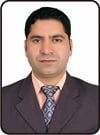New Models and E-Learning Trends in Teacher Education and Professional Development
Abstract
ABSTRACT: With the advent of the knowledge era, teacher education needs to prepare teachers to face the changing technological contexts and to model pedagogies and tools for better forms of learning. Despite much enthusiasm about the roles of technology in education, its role in transforming teacher learning, in ways aligned with advances in the learning sciences and contemporary socio-cultural perspectives, few changes have occurred. While many teacher educators are turning away from technology after early attempts met with mitigated success, some are pushing the boundaries of teacher education and professional activity systems. This paper identifies and analyzes emerging trends and models in e-learning for teacher education and professional development from the developing research base, both international trends and current developments. As we know that globalization cannot be understood without including information and communication technology (ICT). Educational institutions and teaching staff have many benefits due to emergence of modern technology. Teachers have their own networks through which they connect themselves with other teachers across the globe. Institutions have web-supported classrooms. Similarly, it also enhanced the responsibilities of schools, colleges, universities that should have such teachers who can produce such students who after receiving their education can adjust themselves at any platform.
KEY WORDS: Teacher education, technology in education, models in e-learning, and teacher professional development.

About the Author: Hilal Ahmad Wani is Research Scholar at the Department of Political Science AMU (Aligarh Muslim University), Aligarh, Uttaraparadesh, India. He can be reached at: wanihilal@gmail.com
How to cite this article? Wani, Hilal Ahmad. (2011). “New Models and E-Learning Trends in Teacher Education and Professional Development” in EDUCARE: International Journal for Educational Studies, Vol.4(1) August, pp.1-10. Bandung, Indonesia: Minda Masagi Press owned by ASPENSI in Bandung, West Java; and FKIP UMP in Purwokerto, Central Java, ISSN 1979-7877.
Chronicle of the article: Accepted (June 1, 2011); Revised (July 3, 2011); and Published (August 17, 2011).
Full Text:
PDFReferences
Berliner, D.C. (1994). “Teacher Expertise” in T. Hussen & T.N. Postlethwaite [eds]. International Encyclopedia of Education. New York: Pergamon, 2nd edition, pp.6020-6026.
Fuller, F. (1969). “Concerns of Teachers: A Developmental Conceptualization” in American Educational Research Journal, 6, pp.207-226.
Griffiths, S. & S. Tann. (1992). “Using Reflective Practice to Link Personal and Public Theories” in Journal of Education for Teaching, 18, pp.69-84.
Guskey, T. (2003). “Analyzing Lists of the Characteristics of Effective Professional Development to Promote Visionary Leadership” in NASSP Bulletin, 87, pp.4-20.
Hezel, Associates. (2005). “Global E-Learning Opportunity for U.S. Higher Education” in http://www.hezel.com/globalreport/ [accessed in Aligarh, Uttaraparadesh, India: 1 July 2011].
Johnson, J. (1998). “Embracing Change: A Leadership Model for the Learning Organization” in International Journal of Training and Development, 2(2), pp.141-150.
Kagan, D.M. (1992). “Professional Growth among Pre-Service and Beginning Teachers” in Review of Educational Research, 62(2), pp.129-169.
Kinshuk, Suhonen et al. (2003). “Mobile Technologies in Support of Distance Learning” in Asian Journal of Distance Education, 1(1), pp.60-68.
Lee, M.K.O., C.M.K. Cheung & Z. Chen. (2005). “Acceptance of Internet-Based Learning Medium: The Role of Extrinsic and Intrinsic Motivation” in Information & Management, 42, pp.1095-1104.
NID [National Institute of Education]. (2008/2009). A Teacher Education Model for the 21st Century. Singapore: NID, pp.1-128.
Papastamatis, Adamantios, Eugenia Panitsidou & Panagiotis Giavrimis. (2009). “Facilitating Teachers and Educators Effective Professional Development” in Review of European Studies, Vol.1, No.2, pp.83-87, 88.
Sun, Microsystems. (2003). “E-Learning Framework” in http://www.sun.com/productsnsolutions/edu/whitepapers/pdf/framework.pdf [accessed in Aligarh, Uttaraparadesh, India: 1 July 2011].
Teo, C.B. & R.K.L. Gay. (2006). “A Knowledge-Driven Model to Personalize E-Learning” in ACM Journal of Educational Resources in Computing, 6(1), pp.1-15.
Tuomi, M.T. (2004). “Planning Teachers’ Professional Development for Global Education” in Intercultural Education, 15(3), pp.295-306.
Wagner, N., K. Hassanein & M. Head. (2008). “Who is Responsible for E-Learning Success in Higher Education? A Stakeholders’ Analysis” in Educational Technology & Society, 11(3), pp.26-36.
EDUCARE: International Journal for Educational Studies. Ciptaan disebarluaskan di bawah Lisensi Creative Commons Atribusi-BerbagiSerupa 4.0 Internasional
